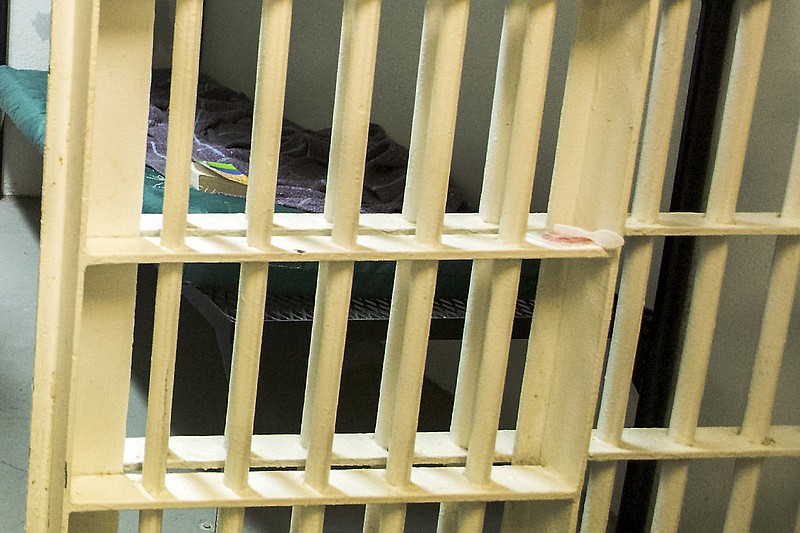A Helena-West Helena man who immigrated to the U.S. from Yemen when he was a child was sentenced Friday to 65 months in federal prison after pleading guilty to providing material support to a terrorist organization.
Bilal Al-Rayanni, 31, who is also known as Bilal Kassim Alawdi, is a Yemeni national who was first indicted in the Eastern District of Arkansas in July 2019 on a charge of providing a false name on a passport. A superseding indictment filed the following month added the charge of providing material support to a foreign terrorist organization, namely al-Qaida in the Arabian Peninsula.
The organization was designated by the U.S. secretary of state as a foreign terrorist organization when Al-Rayanni traveled to Yemen in 2014 and worked for it for three months, from about Oct. 1, 2014, until about Dec. 31, 2014.
According to a criminal complaint filed June 28, 2019, the defendant identified himself as Alawdi when he mailed a passport renewal application the previous month from Helena-West Helena. As part of the renewal application, he provided a passport that had been issued in November 2008.
He admitted in a subsequent interview with State Department and FBI agents that his true name is Al-Rayanni, but told them that his father had illegally purchased a United States visa from a man in Yemen named Kassim-Alawdi and used that documentation to fraudulently obtain a U.S. passport for him in 1992 under Alawdi's name.
Al-Rayanni told authorities that he learned his real name when he was 10 to 12 years old, but continued to use the Alawdi name to obtain or renew U.S. passports in 2002, 2008 and finally in 2019, according to the complaint.
On July 6, 2021, Al-Rayanni, who is represented by John Wesley Hall Jr. of Little Rock, pleaded guilty to the charge of providing material support to a terrorist organization in exchange for the government's agreement to dismiss the charge of providing a false name on a passport, which carries a possible sentence of 10 years in prison if convicted and no sentencing enhancements apply.
Initially, according to a sentencing memorandum filed by Hall, Al-Rayanni believed he was facing a possible guideline sentencing range of 46 to 57 months in prison. But, the memo said, after Al-Rayanni entered his plea, a third draft of a pre-sentence report compiled by the U.S. Probation Office contained a 12-level terrorism enhancement and a two-level specific offense characteristic for assisting in a violent act that raised his guideline sentencing range to 292 to 365 months in prison.
Hall noted in the sentencing memorandum that the low end guideline sentence for Al-Rayanni's offense exceeded the statutory maximum sentence of 20 years by four years and four months. He said the elements of the crime agreed to in the plea agreement were that Al-Rayanni knowingly provided material support or resources to Al-Qaida -- also known as Ansar al-Sharia, or by the initials AQAP/AAS -- and that he knew it was a terrorist organization. In the memorandum, Hall said Al-Rayanni traveled to Yemen to visit family in July 2014 with plans to return the following January, right about the time civil war broke out in Yemen.
While he was in Yemen, the document said, Al-Rayanni was "essentially impressed into Al Qaida and could not effectively resist."
According to the factual allegations Al-Rayanni agreed to when he entered the plea agreement, in October 2014 while he was in Yemen, Al Qaida forces began to sweep south from the capital of Sanaa, Yemen's largest city, in armed conflict with Houthi rebels. Al-Rayanni admitted to federal agents in 2019 that, while he was in Yemen, he drove a vehicle in an armed convoy as part of an AAS recruiting mission and even identified himself as the driver of a Toyota Land Cruiser in a video of a convoy rolling through a remote mountain pass on a trip to recruit fighters to oppose the Houthis.
According to the plea summary, federal agents recovered a number of photos and videos from a micro-SD card in Al-Rayanni's cellphone that dated to the time period he was in Yemen. Among the items recovered from the card were photos of Al-Rayanni with a dagger at his waist bearing the AAS emblem; images of Al-Rayanni with the ISIS flag and the same dagger resting on his chest; there were also images of Al-Rayanni sitting in front of a white Toyota Land Cruiser with an ammunition belt hanging from the vehicle, while two rifles and an AK-47 automatic weapon are resting against the vehicle.
The search of the micro-SD card also recovered several ISIS videos that are known to the government that depicted battle sequences, suicide bombings, ISIS propaganda, and summary executions by ISIS militants.
At sentencing, U.S. District Judge Susan Webber Wright denied the terrorism enhancement after Al-Rayanni's objection on the grounds that the terrorism enhancement requires that a defendant take action against a government. Al-Rayanni, who denied that he ever participated in violent acts and said he only rode as security for an Al Qaida recruiter seeking fighters to go up against the Houthi insurgents who were trying to topple the Yemeni government.
In addition to the 65-month prison term, Wright ordered Al-Rayanni to serve 10 years supervised release when he leaves prison.
